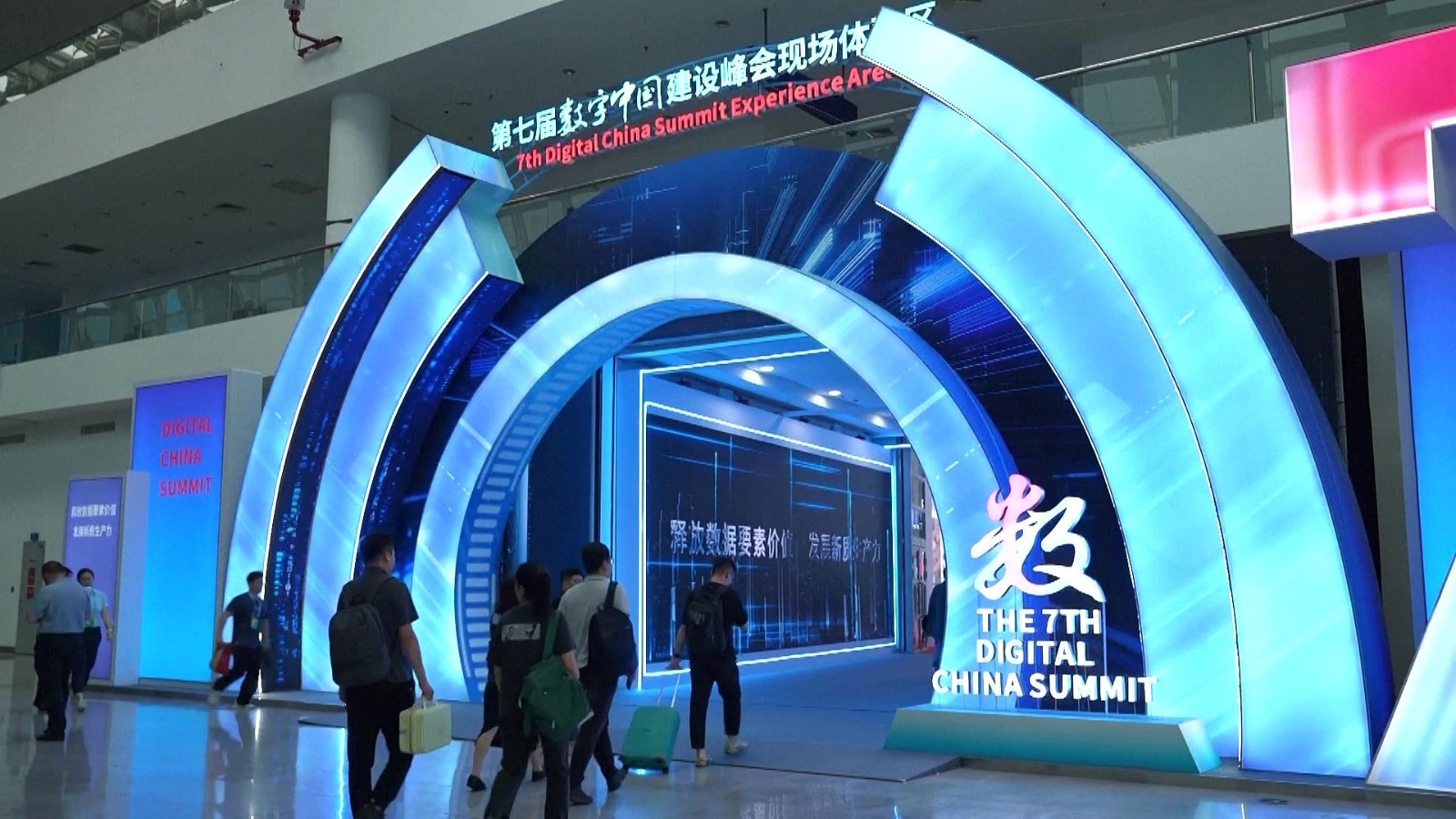Boosting African digital economies: China strengthens measures to foster growth engines

China has recently pledged to continue implementing a major Belt and Road action plan to further promote scientific innovation and redouble efforts to develop multilateral platforms for cooperation in the digital economy and artificial intelligence.
The country made the pledge in a key document which outlines its plans for reform and modernization in the coming years following a crucial meeting of the Communist Party of China.
This demonstrates the country’s determination to further promote its high-level opening-up. The move and process will inject momentum into the digital economies and related industries of African countries, deepen cooperation with these countries in the fields and achieve mutual benefit and win-win results.
In recent years, digital economy cooperation has become one of the priorities of China-Africa cooperation. Under frameworks and platforms, such as the Belt and Road Initiative, the Forum on China-Africa Cooperation, and the China International Import Expo, China has actively assisted many African countries in achieving digital transformation from different aspects, promoting their economic development and benefiting the African people.
Since 2000, Chinese enterprises have helped African countries to add and upgrade about 150,000 kilometers of telecommunication networks, with network services covering about 700 million users. In addition to actively constructing digital infrastructure, Chinese enterprises have also created cross-border e-commerce platforms and even built 5G networks in Africa.
The inexpensive and high-quality Chinese-made smart phones are very popular in African countries, bringing affordable Internet consumption experiences to the African people and promoting the growth of the continent’s digital economy.
With the continuous advancement of the Belt and Road Initiative, China has begun to work with the participating countries to promote the construction of the Digital Silk Road and strengthen digital connectivity between them.
Take Nigeria as an example, Chinese companies have contributed to the development of the country’s digital economy through various means, from the construction of digital infrastructure, 5G networks to the now sought-after artificial intelligence. Data from DataReportal, a data analytics firm that specializes in providing reports on global digital trends, shows that Nigeria’s cellular mobile users increased by 7.8 million in 2023.
As of January 2024, the number of cellular mobile connections in the country had increased to around 205 million, accounting for more than 90% of the total population. The figures can largely be attributed to the rapid development of its digital infrastructure.
China and Nigeria have great potential and prospects for deepening cooperation in the digital economy with a solid foundation laid. As China adopts more and more measures to deepen cooperation and create more cooperation frameworks and platforms, Nigeria’s growing and diverse demand for digital economic development will be met to a greater extent.
Deepening the construction of digital infrastructure China and Nigeria can further deepen cooperation in areas such as digital infrastructure construction, innovative development of e-commerce platforms, and digital talent cultivation.
Nigeria is the most populous country in Africa and among the countries with the youngest population structure in the world. Data shows that the proportion of young people under the age of 25 in Nigeria is as high as 60%. This young population structure means that the country has higher market demand in the fields of mobile internet, smart phones, digital and artificial intelligence technology applications. The development of digital and artificial intelligence industries requires stronger digital infrastructure and more digital talents.
Increasing capital and technology investment
The problems facing developing countries and the least developed countries in digital economy development include the lack of participation and insufficient investment in funds, technology and personnel. China has been helping Nigeria to gradually solve these problems.
More and more Chinese-funded Internet companies have entered Nigeria, investing in sectors such as e-commerce, finance, logistics and social media. These companies are actively exploring and tapping the country’s resources to further improve the effectiveness of cooperation while respecting its development needs and demands. This has sped up Nigeria’s social and economic development, bringing greater benefits to the Nigerian people.
Leveraging major expos to promote exchanges Both sides should make full use of their major expos and other platforms to create more opportunities for trade and investment cooperation, such as the China International Import Expo, the China International Fair for Trade in Services and the Global Digital Trade Expo.
These major expos can set up special exhibitions on the digital economy, showcasing the latest technological developments and products in the field and providing greater convenience for participating enterprises to share, negotiate and trade.
Conducting cooperation in the field of artificial intelligence
The African continent has become a new hot spot for the AI industry. According to analysts, by 2030, the African AI industry will account for 10% of the global AI market, with a market size of 15.7 trillion U.S. dollars. Many African governments have introduced policies to promote the development of the AI industry. For example, Nigeria has issued the National Digital Economy Policy and Strategy for 2020-2030 and established the National Center for Artificial Intelligence and Robotics.
China has made remarkable achievements in the development of artificial intelligence, which will provide important opportunities for Nigeria to develop its artificial intelligence industry. For instance, China has advanced artificial intelligence technology and rich application scenarios, which can help Nigeria improve the level and application ability of artificial intelligence technology through technology transfer and cooperative research and development. Both sides can jointly carry out scientific research projects to promote the wide application of artificial intelligence technology in agriculture, health care and education and promote the intelligent development of Nigeria.
China’s vast data resources and big data analysis capabilities can provide important support for Nigeria, enhancing the country’s data collection, analysis, and management capabilities.
Establishing more cooperation mechanisms
In addition to the cooperation mechanism under the Belt and Road Initiative, China is also forming more mechanisms.
For example, China has issued the Initiative on International Trade and Economic Cooperation Framework for Digital Economy and Green Development with more than 30 countries including Nigeria. This initiative will form more effective coordination, open up more channels for exchanges and mutual learning and further facilitate cooperation among countries in the digital economy.
The initiative helps to build an open, transparent, secure and stable international environment for the digital economy and green development. It can also simplify trade procedures and reduce trade costs, thus helping developing countries and least developed countries to narrow the gap with developed countries in the digital field.
According to the United Nations, there are 45 least developed countries worldwide, including 33 African countries. The African Union’s Agenda 2063 has prioritized the development of the digital economy and it has also issued the document of the Digital Transformation Strategy for Africa (2020-2030).
China’s renewed determination to firmly implement its Belt and Road Science, Technology, and Innovation Cooperation Action Plan and strengthen the construction of multilateral cooperation platforms in areas such as the digital economy and artificial intelligence will create more and better platforms for African countries, providing more convenient access to larger markets.
The BRI action plan can also create more opportunities for African countries to access advanced digital technologies, reduce operating costs and stimulate innovation capabilities. The multilateral cooperation platforms will provide broader learning, exchange and trade spaces.
Through these platforms, they can collaborate and exchange with China and other countries to jointly develop new markets and business models, better integrate into the global economic system and achieve mutual benefit and win-win results.
Author: Zhou Fang(CGTN)









